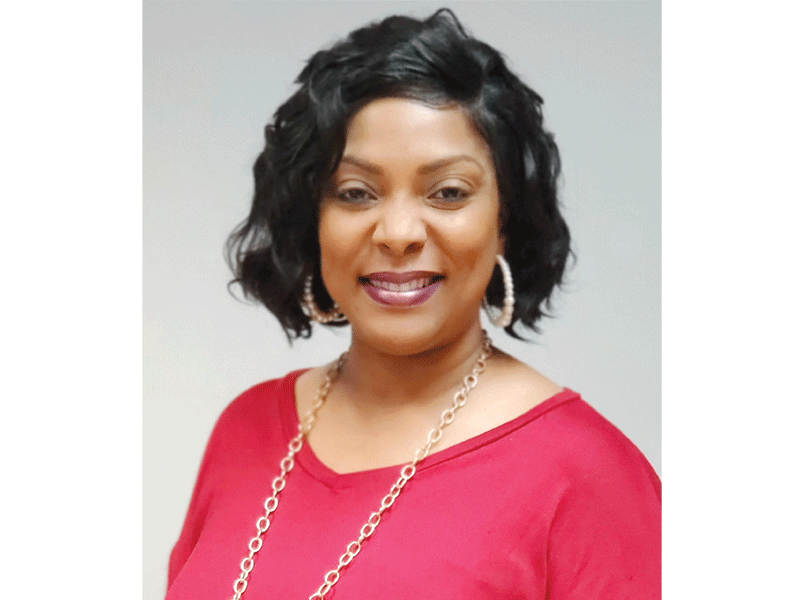A petition to recall Monroe City Councilwoman Kema Dawson-Robinson has been approved by the governor, and organizers have six months to gather about 1,954 signatures to force a recall election.
Local recall organizer Marie Brown told the Free Press Tuesday that the recall committee filed its petition request last week and received the green light to proceed from the governor’s office this week.
Brown is one of two dozen residents who met last month at the Flowery Mount Baptist Church to vent frustration with the representation of Councilwoman Dawson.
The group resolved to organize and seek a recall.
The recall committee is headed by Gwen Dixon and Stanley Holmes.
The committee has 180 days to gather 1,954 signatures of registered voters in District 5.
According to the Registrar of Voters office, there are 5,868 registered voters in the district. To force a recall, a third of the voters must sign a petition requesting an election.
The petition is submitted to the local registrar’s office to verify that the signers are registered voters in the district by checking names and signatures against state records.
The governor will order a recall election if the required signatures are gathered within six months and the petition is certified and valid. In that election, the voters will decide whether or not to recall Dawson. If she is recalled, a date will be announced for an election for her replacement. Even if recalled, she will be eligible to run in the subsequent election.
Refusal to fight for the “Southside Dream”
Dawson has angered many groups for her unwavering support of the Ellis Administration’s “Downtown Dream” while at the same time being reluctant to support the “Southside Dream” plan proposed by the Southside Economic Development District.
The “Southside Dream” is a comprehensive plan to address crime reduction, neighborhood rebuilding, housing, and economic development in South Monroe. Mayor Oliver Ellis has said he is willing to allow up to $1 million a year to fund projects he favors, but only if the Southside residents agree not to tax themselves to raise the $200 million needed. In effect, the Mayor gives Southside a “take it or leave it” option, which Dawson supports.
Dawson, as council chair of the Monroe City Council, is the most powerful woman in the city, but she is being accused of not using her influence and power to help the “Southside Dream.” Critics say she supports the Mayor’s “Downtown Dream” without reservation.
Refuses to fight for Southside Dream
This week, Dawson received a request to place the Southside Dream plan on the agenda for an up or down vote. However, Wednesday, Dawson notified the SEDD in a letter that she would not allow the Southside Dream to be placed on the city council agenda without the mayor’s support.
Although Dawson has complete control over the council’s agenda and could bring the matter for a vote at her pleasure, she wrote, “The TIF is an agreement that should be negotiated between SEDD and the administration. Once there is a mutual agreed upon CEA, I will place it on the council agenda.”
She did not respond to SEDD member requests to use her influence to “fight for us.” SEDD wants the Southside council members to negotiate with the mayor, using their majority voting power, to help change the mayor’s mind.
Additionally, the organizers noted that this year she voted to approve the SEDD 25-year plan after getting pressure from her district, but at the Mayor’s insistence, she voted to prohibit Southside minorities, women, and the disabled from receiving loan guarantees to expand or start new businesses with public funds.
Others have criticized her for only having one concern for South Monroe, which was the development of the Zoo, which is not considered a high priority in South Monroe.
Earlier this year, Dawson had community organizer Marie Brown ejected from a city council meeting when she disliked an answer to a question Brown answered.
Recall History
Recall petitions have been filed over the years, but very few have been successful.
An effort to recall Richwood Mayor Gerald Brown was initiated in February 2021. Recall organizers gathered enough signatures to put the recall on the ballot. The recall election took place on December 11, 2021, and Brown retained his seat. These 254 people participated in the election, and Brown was re-elected by 60 percent of those voting (153).
Mayor Brown said that the recall effort began after former Richwood Mayor Ed Harris became eligible to run for office again and that Aldermen Wysinger Cleveland and Wilbert Reed, Jr., and Alderwoman Leola Keys were involved in the recall. Cleveland denied that members of the Board of Aldermen were involved, saying, “We didn’t have anything to do with the recall and our names are not on the petition.”
In 2014, a petition to recall Richwood Mayor Alvin Jackson began but was abandoned by its organizer Margie Davis. Davis was a Richwood Alderwoman, Margie Davis was upset over the town’s financial situation and wanted Jackson out of office.
In 2012, Monroe City School Board chairman Verbon Muhammad was the target of three recall petitions that began in November 2011. The initial recall effort, as well as a subsequent recall effort, were both abandoned. A third recall attempt started in June 2012, but the recall question did not make it onto the ballot. Muhammad faced criticism for his opposition to popular Black Superintendent Kathleen Harris, who was eventually fired.
In 2012, Monroe City School Board member Clarence Sharp faced a failed recall effort.
In 2009, Richwood Mayor Rev. Steve Hunter was recalled, then re-elected after being recalled. Controversy in the town began in July 2008 over an investigation into the fiscal practices of former Mayor Ed Harris. Recall supporters, all backers of former mayor Ed Harris, succeeded in recalling Rev. Hunter but could not make it stick; Rev. Hunter was re-elected to finish his term.




